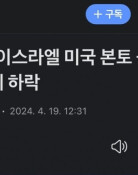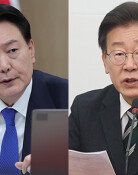Currency gurus warn economic bubbles caused by quantitative easing
Currency gurus warn economic bubbles caused by quantitative easing
Posted June. 03, 2013 02:09,
The current recovery in the global economic indices is nothing but temporary effects of quantitative easing. If loose monetary policies are stopped, it will inevitably lead to plunging stock prices. (Song Hongbing, president of the Global Financial Research Institute in China)
In order to prepare for a worst-case situation that might come in the future, Asian countries such as South Korea, China and Taiwan should join forces. Launching a single currency like the euro is a good way. (James Rickards, a senior managing director of Tangent Capital Partners, LLC in the U.S.)
At the Dong-A International Finance Forum 2013 hosted jointly by the Dong-A Ilbo and its cable TV network Channel A in Seoul on Friday under the theme Global Currency Wars and Koreas Financial Strategy, the two world-renowned currency experts stressed that South Korea and other emerging economies should pay attention to a crisis that advanced economies quantitative easing could cause and draw up strategies to respond to it.
○ Rising house prices are bubbles caused by low interest rates
Song warned in his keynote speech that the current recovery in global economic indices is only temporary and that the rebound in property markets are nothing but asset bubbles caused by low interest rates.
Currently, the U.S. and European stock markets are breaking records every month. However, it is not a result of an economic recovery but one caused by quantitative easing, he said. Although quantitatively eased money is pulling up share prices, it cannot be seen as an actual economic recovery. He noted that an end to the quantitative easing would inevitably lead to plunging stock prices.
He said that money supplied to the market by quantitative easing would flow into new emerging economies including China. The hot money would disturb financial markets in emerging economies and would cause inflation some day.
○ South Korea should increase gold reserves
Rickards stressed that each country should increase its gold reserves in order to be able to cope with a crisis that would unfold in the future.
He said that if a huge disaster occurs in the financial markets and the confidence in the global currency system collapses, major economies could gather together to resolve the problem. Countries with large gold reserves would be able to play an important role in rebuilding the world currency market, he predicted.
Asked when the global currency war will end, he said, It is important when it will end. But what is more important is how it will end. He noted that the ongoing currency war could lease to worldwide inflation or very serious deflation, depending on how each country responds to it.
He stressed that Asian economies should cooperate to prepare for a worst-case situation that might occur. Economies that can print money such as the United States, Britain, the European Union and Japan would not sustain a big damage, while countries such as South Korea, China and Taiwan could become the biggest victim of the currency war.
○ International policy coordination will prevent catastrophe
Kim So-yeong, a professor of economics at Seoul National University, participated in the global forum as a moderator, while Yun Chang-hyun, president of the Korea Institute of Finance, and Joris Dierckx, country head of BNP Paribas Korea, joined Song and Rickards in the forum.
Currently, there is tacit policy coordination among advanced economies but not between advanced countries and emerging economies, Kim said.
In order to prevent a catastrophe in the currency war, it is important to coordinate policies among countries, Yoon said. He proposed that the G5 countries (the U.S., Japan, Germany, France and Britain) should include China in policy coordination.
As organizations exist for climate change, it would be good to establish an organization for currency issues, said Dierckx.







